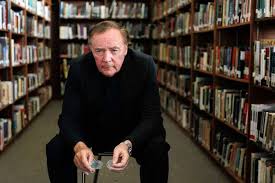Best-selling author James Patterson recently pledged $1 million dollars of his own money to independent bookstores all over the country. Each bookstore will receive $2,000-$15,000 of unrestricted funds. As of February 20th, Patterson has already donated $267,000. A list of the recipients can be found here.
Unsurprisingly, Patterson’s gesture has met with plenty of accolades – the New York Times even called him independent bookstores’ Daddy Warbucks. And, in a way, he is.
Some of the book stores who have already received funds plan to use them to give back to their literary community. The Odyssey Book Shop in Massachusetts, for example, wants to work with local organizations to create opportunities for kids to meet authors and get signed books.
For these bookstores and their patrons, Patterson’s donation represents an investment in the future of literature when that future is anything but clear.
Other commentators, however, have questioned if his gesture is just a misguided attempt to sustain a dying business model. The critics? Self-publishers!
Author JA Konrath wrote a blog article responding to Patterson’s gesture:
“I understand that brick and mortar bookstores and publishers helped make you very rich. It’s nice that you want to help them out. But stop confusing the trouble they’re in with literature being in jeopardy. Literature is not in jeopardy. The way customers acquire literature is changing. That’s all.”
Commenters over at The Passive Voice were also skeptical:
“My question is – why bookstores? If he’s worried about both bookstores and libraries like he says, shouldn’t he be giving the money to the non-profit, government-funded, community institutions that are being squeezed by budget cuts…?”
As these bloggers point out, the rise of self-publishing, e-publishing, and online sales represents a change in distribution, not the end of literary accomplishment.
The debate over Patterson’s bailout is centered around the single biggest question the industry has faced since the invention of the printing press – What role will brick and mortar book stores play in the future of publishing?
Self-publishing professional Joel Friedlander calls the potential partnership between self-publishers and indie bookstores “a match made in heaven” but acknowledges that there are some pretty big obstacles:
1) No matter how engaged in the community they are, booksellers ultimately have to decide what will make their business viable in a difficult economy. This means that self-published authors often have to pay to host events at their favorite indie bookstore and do all of their own publicity – if they are welcome at all.
2) Bookstores have seen their profits drop dramatically thanks to Amazon, but self-publishers rely on the online retail giant. This can make partnerships difficult, especially if booksellers try to prohibit authors from selling their work on Amazon.
3) Print runs are not easy – or cheap – for self-publishers. It can be hard to support your favorite local bookstore if it means a lot of upfront costs.
4) E-book only authors have very little incentive to work with their local bookstores. Why work hard for shelf space when there is an infinite amount of space on Amazon or on your personal website?
5) Self-Distribution, a lot like self-publishing, takes a TON of time and energy. Pounding the pavement to get indie bookstores to buy their book is not always attractive to self-publishers who may be able to sell more on-line anyway.
Thus far, indie bookstores and self-publishers have not really forged strong partnerships in the changing publishing industry.
These obstacles are not, however, insurmountable. Some self-published authors are optimistic that personal relationships between authors and their bookstores could result in meaningful partnerships on both sides. Also, websites like indiebound.org give writers the opportunity to become online affiliates with their local bookstores.
What do you think? What role do indie bookstores (or any brick and mortar bookstores) have in your publishing plan?


This is really interesting to me, particularly as an independent author who’s made a strong relationship with a bookstore. I guess the best thing that’s happened is that I have been able to offer the bookstore something– exposure, traffic, and they have been able to do the same for me. I think that’s the trick– a mutually beneficial relationship.